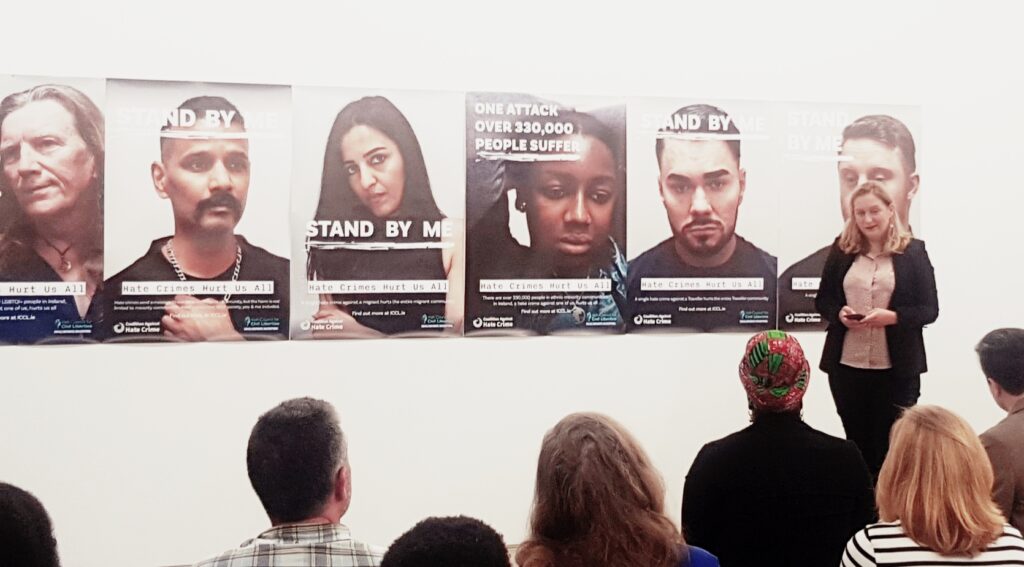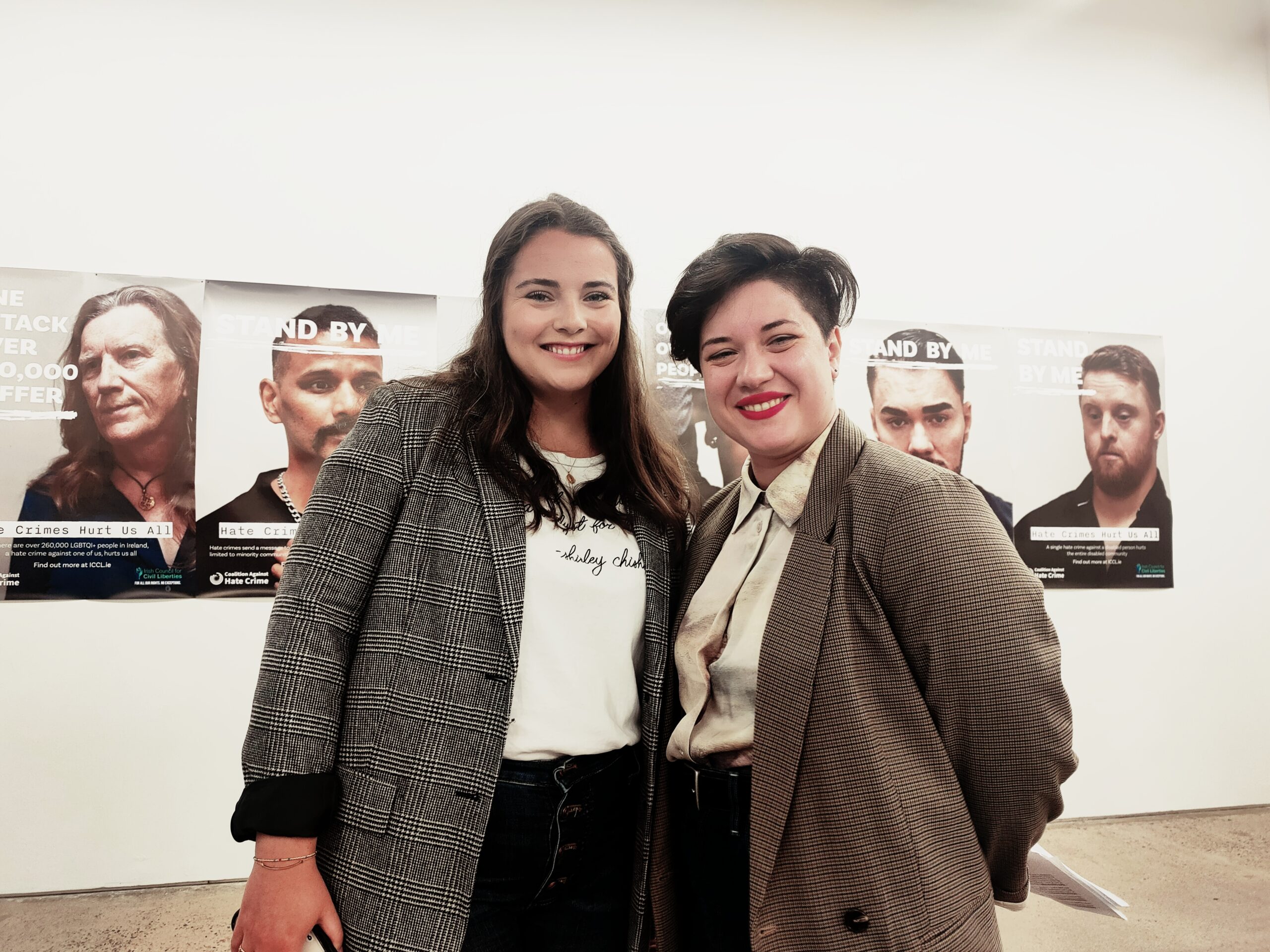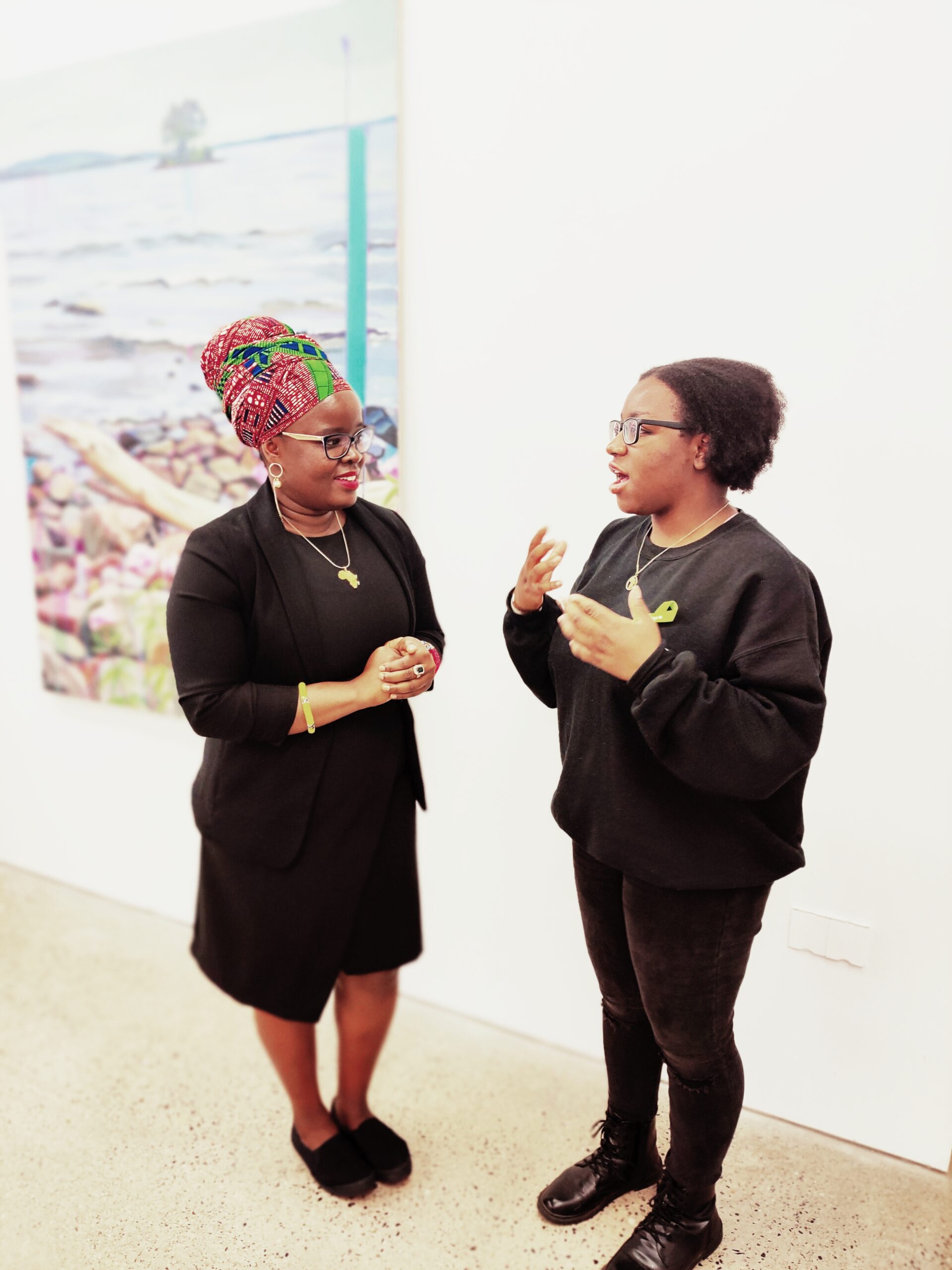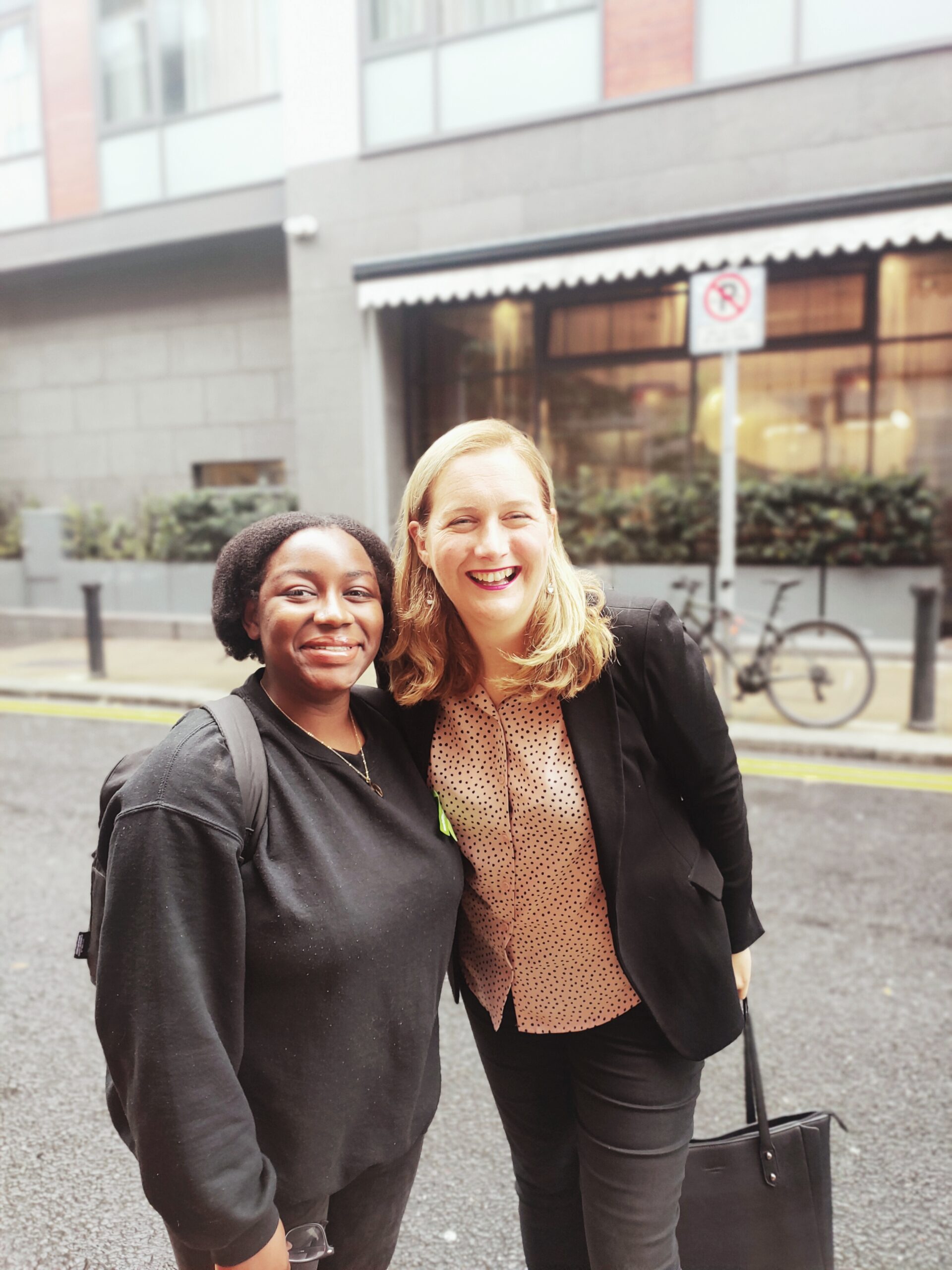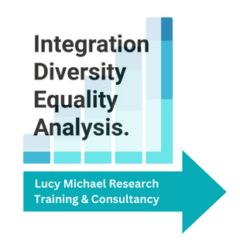Today saw the Coalition for Hate Crime launch of the new campaign #HateCrimesHurtUsAll with incredible speakers talking about personal and community experiences of hate and the ripple effects of hate crimes – harm on an individual, community, and societal level.
The Coalition Against Hate Crime Ireland is a civil society coalition whose Members represent groups commonly targeted by hate crimes, including minority ethnic groups, LGBTQI communities, disabled people, and others, as well as academics and researchers working to advance the aims and objectives of the Coalition. @ICCL is the current chair of the Coalition.
The objective of the Coalition is to promote meaningful reform of the law, policy and practice as it relates to hate crime in Ireland including, but not limited to:
hate crime legislation;
improving data collection in the reporting and recording of hate crime and hate incidents;
education; training and awareness raising activities;
hate speech;
cyber hate crime;
supporting victims of hate crime and assuring effective implementation of the Victims Directive.
The campaign is now online
https://www.iccl.ie/news/standbyme-2/
#HateCrimesHurtUsAll
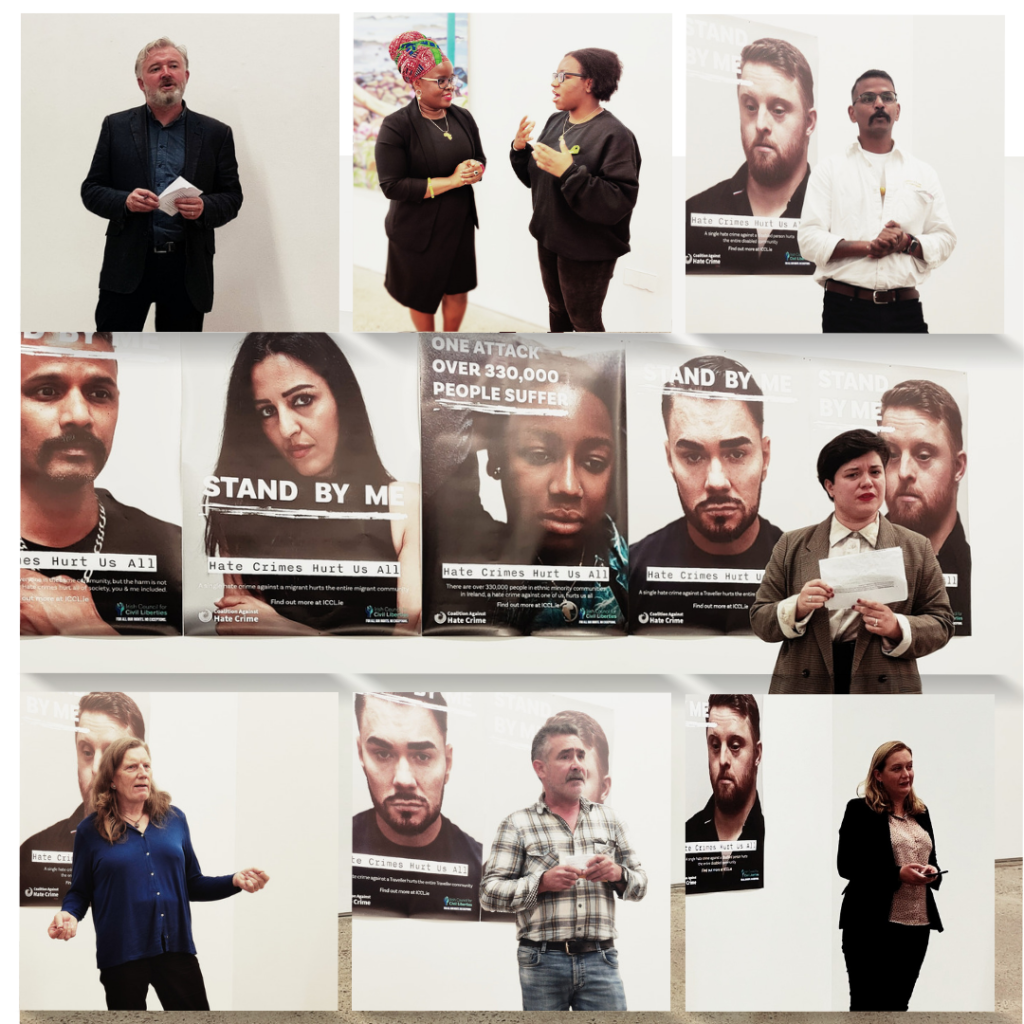

Speaking at the launch, Lucy addressed the issue of societal impact.
“Hate crime impacts are felt by people who share some element of identity with the targeted person and those who have a relationship with them – that can include a very large number of people in any community.
Hate crimes are message crimes. They are committed in order to send a message. They send a message to key groups to be fearful, and to accept a lower status in society, and that message reverberates loudly through the communities around those with a targeted identity. Hate crime isolates.
As Pradeep said, the effects on the victim are long term. So are the same effects on our society. People often imagine a divided society beginning with political statements. But divided societies begin with unsafety.
I’m only standing here because it’s been my privilege to work with a wide variety of groups experiencing hate crime and discrimination. Thank you to the INAR for allowing me to do that with you and the Coalition for allowing me to contribute on that basis.
In 8 years of doing media work around INARs data on racist hate crime, we have always been struck that there has been much more interest by the media in single stories than in the expertise that minority groups develop around patterns of hate. We have had to work hard to amplify that. We have much, as a society, to learn from those who experience hate. As Ailsa and Martin both said, too often, people experiencing hate crime are let down by police and other institutions who deny its very existence. The constant fear that it will happen again tomorrow is the most significant impact of hate crime.
The impact of hate crime on the wider community is intended, not accidental. Hate crimes send the message that selected persons are not entitled to live their lives peacefully and with dignity in our society, and that they are lesser than an imagined majority in the society. They make invisible the commonalities we have with one another, and instead highlight selected differences, whether those be gender, ethnicity, nationality, sexual orientation, disability, age, or religion.
They mark out selected identities for victimisation, poor treatment, less empathy, exclusion, and blame for their experiences of hate and exclusion. Hate crimes divide societies, communities and networks at every level.
That’s why it’s important to take account of the very serious impact they have on an individual, but also our society at large.
Legislation sends a counter message. It sets out that all belong equally, all deserve dignity and safety. Our children, our neighbours, our work colleagues, everyone who lives in and is part of our communities, is protected by the law and should feel it’s protection.
Hate crimes often target one – one person, one venue, one family, one house, but hurt us all.”
